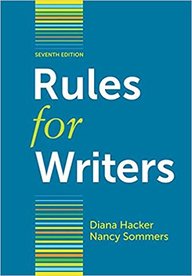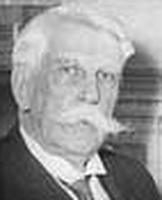 by Amanda Smera Few things make me angrier than when people read something I’ve written and point out my talent. The intentions, of course, always come from a good place and they mean no harm. And yet the bitter taste in my mouth never fails to feel discrediting. I want to scream from the top of my lungs: “I’VE BEEN WORKING ON THIS FOR A MONTH STRAIGHT, FOR YOU TO DARE AND ASSUME IT WAS JUST ‘MY TALENT’?!” It feels like an outdated myth that talent is a bigger force, that either you’ve got it, or you don’t. I have hundreds of thousands of school essays, Harry Potter fan fictions, and journal entries that prove that I was no Jane Austen at the age of five or fifteen.
0 Comments
 by Rebecca Rodriguez In high school, we are given our first copy of Diana Hacker’s Rules for Writers, which we are commanded to worship. It’s not a bad book, by any means, and (if read for anything other than MLA citation instructions) specific information on sentence structure can be found within it. In fact, there is an entire section dedicated to taking wordy sentences and tightening them. ←Example→ There is a section on tightening wordy sentences. Although fair warning is given that short sentences aren’t always concise, wordiness is considered ultimately taboo. Not only does it focus on eliminating redundancies, but it encourages us, the writers, to cut inflated phrases (e.g. change “At the present time…” into “Now...” or “Currently...”). We also must take every opportunity to reduce a clause into a phrases, or a phrase into a single word. Though we try not to worry about these rules outside of our research papers, it’s too late. Today’s generation of writers have already been brainwashed. by Steve Royek The professional football career of Richie Incognito is probably over and he faces a life of being known as the white player who harassed black teammate Jonathan Martin with threatening and racist texts and voice messages. Could he, however, soon be trading in his orange and turquoise Miami Dolphins’ uniform for an orange prison jumpsuit?  Oliver Wendell Holmes, Jr. Oliver Wendell Holmes, Jr. If Oliver Wendell Holmes Jr. had his way, he just might. Of all the names swirling around this sad, salacious scandal of language-based threats and violent rhetoric, one of the most interesting might be that of the former U.S. Supreme Court justice. Holmes authored the landmark 1919 “Schenck v. United States” opinion that set legal guidelines for violent speech with the often-quoted “shouting fire in a theatre” analogy. “Schenck” was the first high court ruling to carve out an exception to the once-absolute Freedom of Speech protection in the Bill of Rights. |
Archives
July 2024
Categories
All
|
|
Glassworks is a publication of Rowan University's Master of Arts in Writing 260 Victoria Street • Glassboro, New Jersey 08028 [email protected] |
All Content on this Site (c) 2024 Glassworks
|

 RSS Feed
RSS Feed
